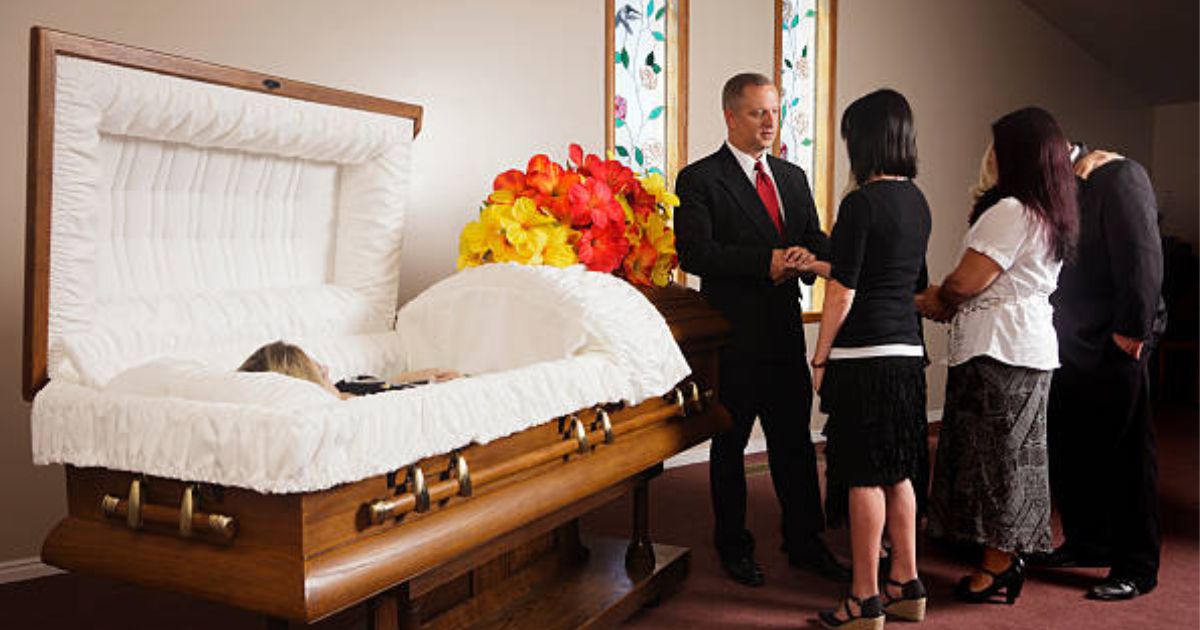A Moldovan physician, Dr Viktor Ivanovik, recently caused widespread backlash and fear online after warning his 1.2million TikTok followers, “Never kiss a dead person!” He claimed that dangerous bacteria begin growing on corpses just nine hours after death, posing significant health risks such as the loss of smell and cardio-respiratory issues for those who come into contact with a deceased loved one.
“Do not kiss the deceased on their final journey, especially in the summer or in the room where the lifeless body is placed if there is no air conditioning,” Ivanovik said. He added, “Kiss the deceased when the lifeless body is in the custody of an air-conditioned morgue at an appropriate temperature.”
The viral advice triggered a heated debate on social media and drew criticism from bereaved families, who described Ivanovik’s warnings as insensitive during times of grief. Fact-checkers and fellow medical professionals were swift to challenge his assertions, with New York City internist Dr Stuart Fischer dismissing the TikTok claim as “nonsensical and simply not possible.”
Fischer told Dailymail, “In any given person, there are many different types of good bacteria, but they all serve a purpose. It would be like having 100,000 secret service agents to guard someone.” He went further, “The bacteria would be outnumbered, and they would die quickly because of the immune system of the supposedly newly infected person.”
Is it okay kissing dead loved one in their coffin?
byu/Deaf_Cam inmorbidquestions
Fears stemming from Ivanovik’s social media message included the risk of catching dangerous pathogens like Staphylococcus or Clostridium through a final kiss. However, Dr Fischer questioned the validity of such concerns, noting, “How come I’ve never heard of this before in my life as a physician for 45 years?”
He further added, “That means that the loved ones would die or be hospitalized within a day or two. I don’t believe it’s happening.” Fischer asserted that Ivanovik’s video did not reflect standard practices, pointing out, “For burials, the funeral directors take things like this into account also. There would certainly have been cases of this before. This is not something where you could suddenly have a brand new epidemic of something”
Respected global bodies also joined the conversation, with the World Health Organization (WHO) stating in a widely referenced advisory, “There is no evidence that corpses pose a risk of epidemic disease.” The WHO emphasized, “Most agents do not survive long in the human body after death. Human remains only pose a substantial risk to health in a few special cases, such as deaths from cholera or hemorrhagic fevers.”
Will you do this for love?
Kissing a corpse pic.twitter.com/Zolkv3a3aV
— DP 🇰🇪 (@DanChepta) July 13, 2025
This aligns with international medical guidance, which considers most postmortem infection risks to be minimal under ordinary circumstances unless highly infectious diseases are involved.
While Dr Ivanovik’s post achieved viral popularity, his own medical credentials could not be verified by several news outlets in both Europe and the United States. His claims clashed not only with medical science but also with social reality. Dr Fischer offered a measured perspective: although he did not personally endorse kissing the deceased, he found “nothing medically wrong with choosing to do so if it brings a grieving relative comfort.”
Many social media users said they would “do it a million times more!” despite the alleged risks, with one commenting, “I kissed my father, and I would do it a million times more! I can even lose my taste and smell, he’s my father!”
CAUSE I DON’T CARE IF YOU SICK, I DON’T CARE IF YOU CONTAGIOUS, I WOULD KISS YOU EVEN IF YOU WERE DEAD
— 🐁🧀 (@i9yko) July 28, 2025
Another added, “Honestly, I don’t think anyone can resist kissing their parent on the hand or forehead, one last time.” The emotional value of a final parting gesture appears, for many, to outweigh the low risk asserted by experts.













